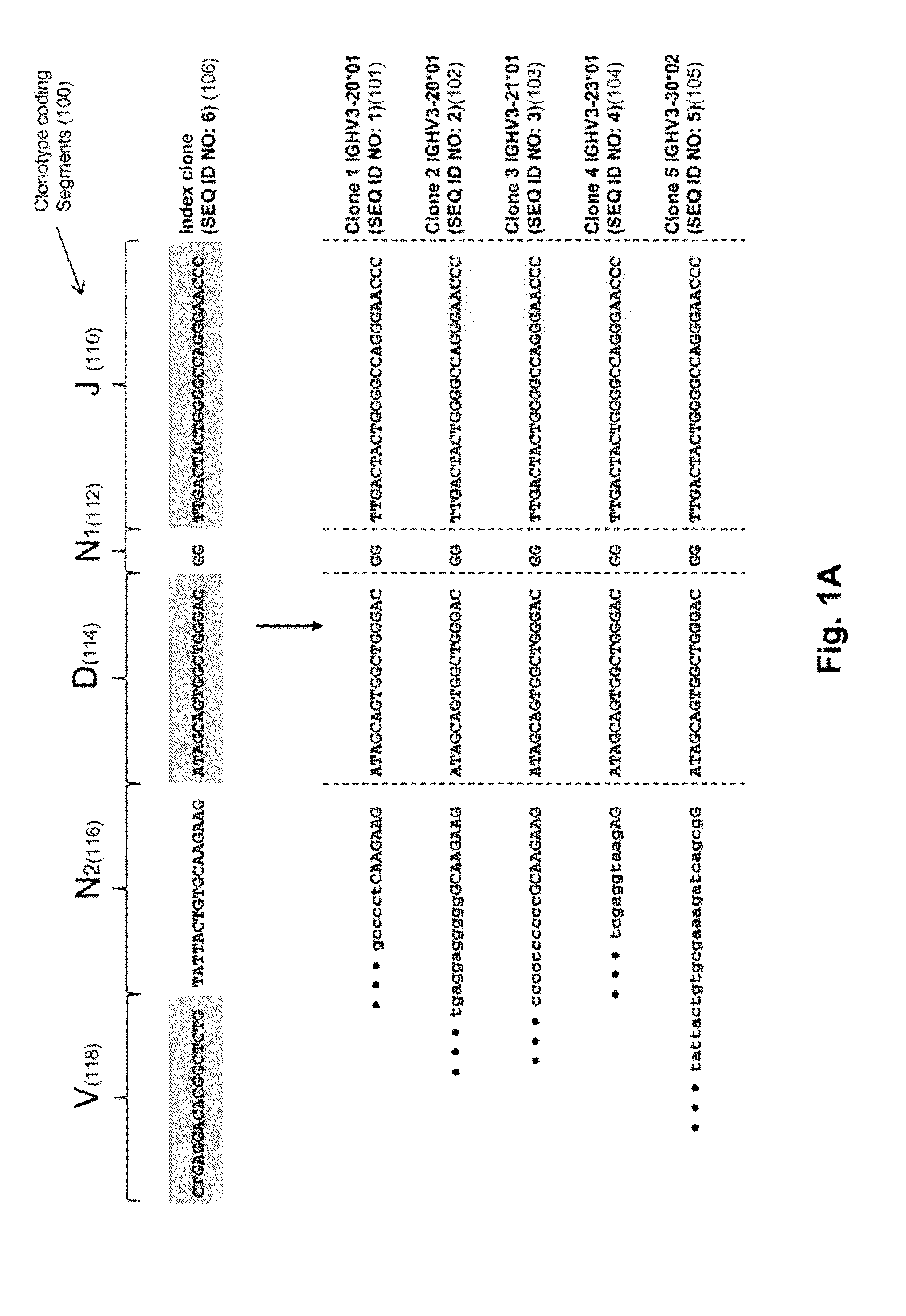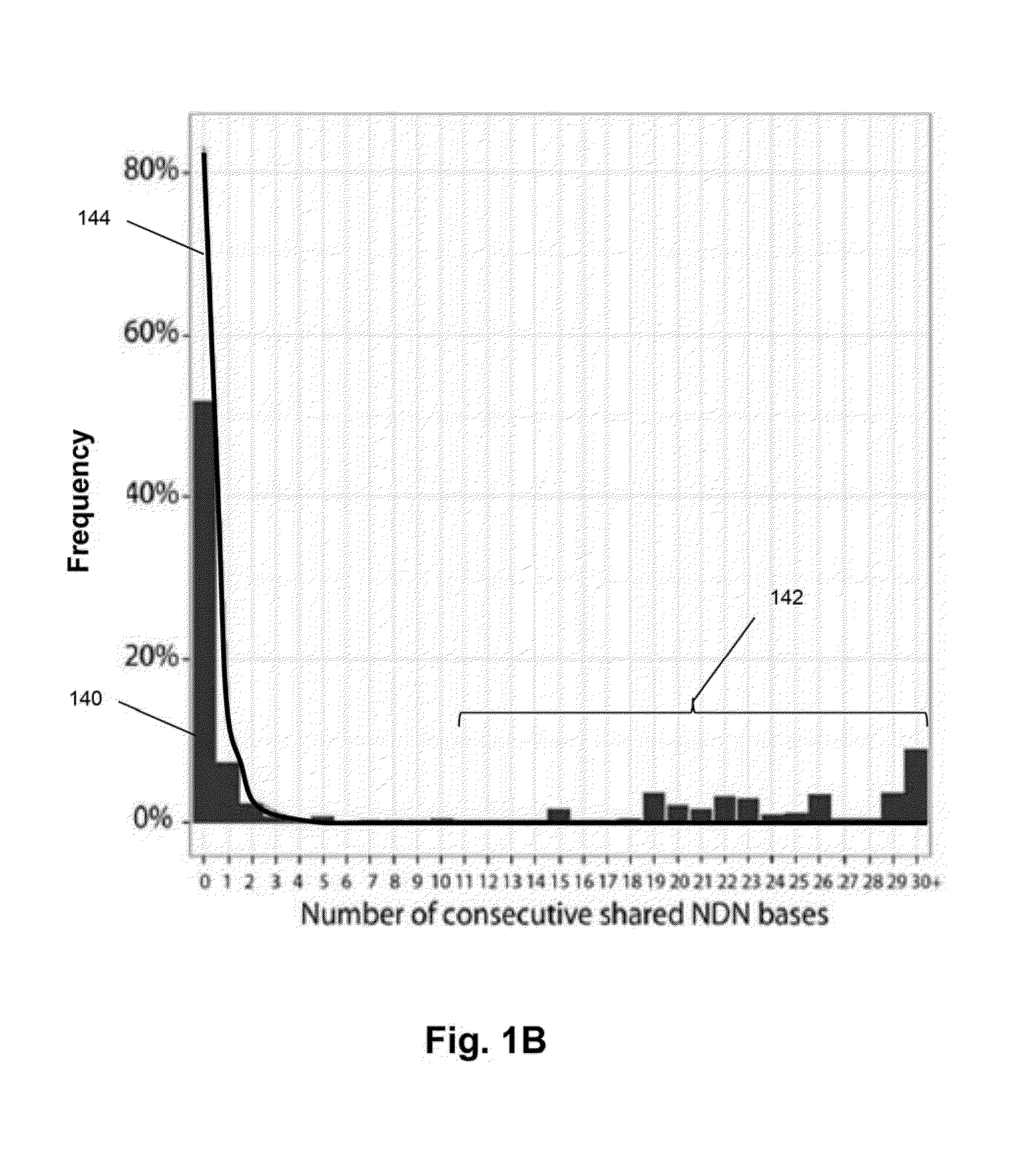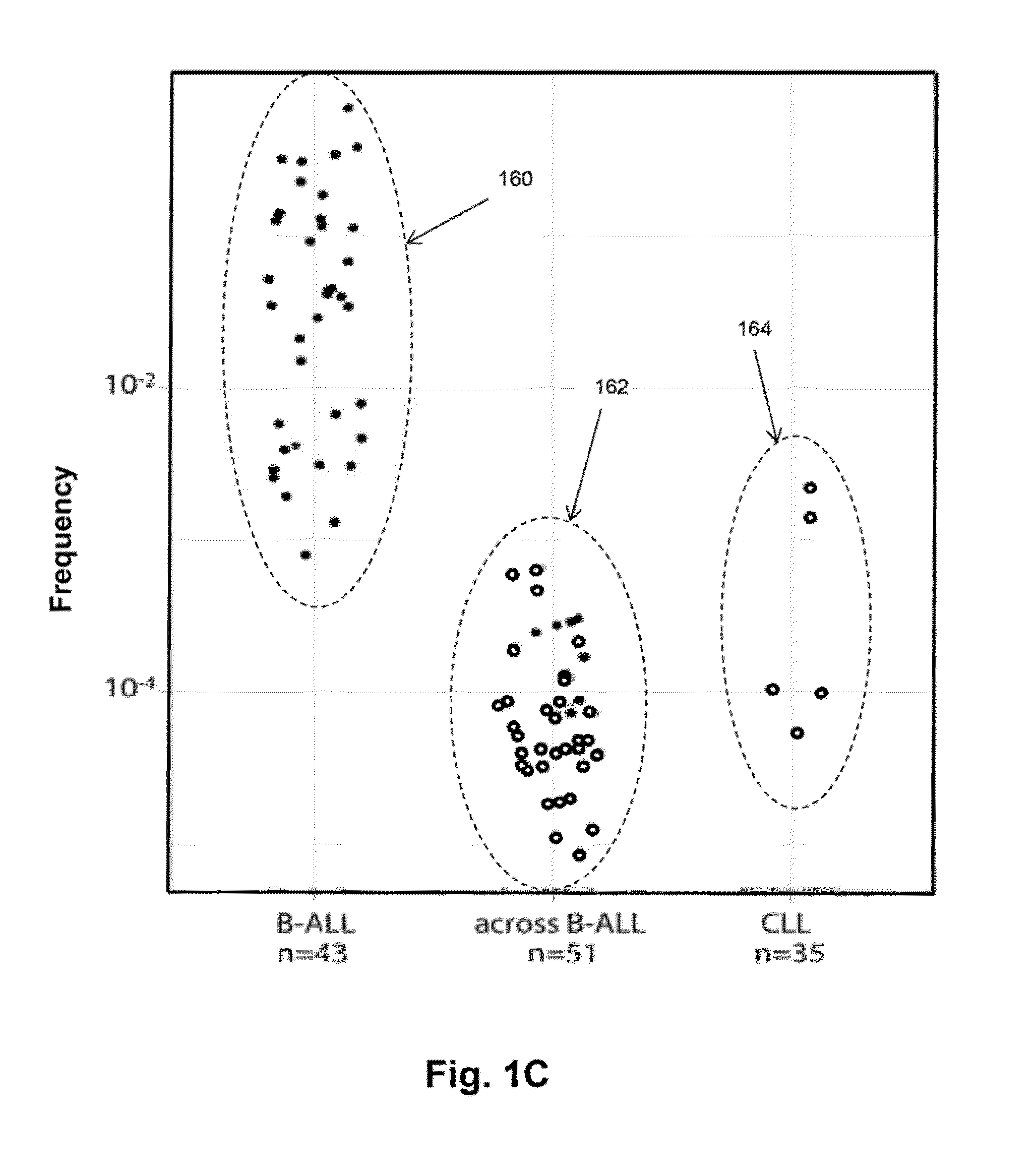Monitoring immunoglobulin heavy chain evolution in b-cell acute lymphoblastic leukemia
a technology of immunoglobulin and lymphoblastic leukemia, which is applied in the identification of library members, heavy metal active ingredients, biochemistry apparatus and processes, etc., can solve the problems that the current methods of monitoring leukemia clonotypes are not well suited to detecting changes or evolution of leukemic clonotype sequences, and achieve the effect of reducing the likelihood
- Summary
- Abstract
- Description
- Claims
- Application Information
AI Technical Summary
Benefits of technology
Problems solved by technology
Method used
Image
Examples
example 1
Naive Bayesian Classifier of Evolution in ALL
[0068]In this example, construction of a naive Bayesian classifier model of VB substitution is outlined. “IMGT” refers to immunology databases maintained by the international ImMunoGeneTics information system (http: / / www / imgt.org), described in Robinson et al, Nucleic Acids Research (1 Jan. 2013) 41(D1): D1222-D1227. The model below may be implemented in various computer programming languages., including but not limited to, C++, Ruby, Java, Python, or the like.
Elements of IgH V(D)J generation used in model:[0069]Different pieces of data about each test clones:[0070]J allele & J deletion[0071]NDN sequence[0072]V allele & V deletion[0073]Additional information from IMGT about disease clones:[0074]D allele[0075]position of D region[0076]D deletions (J & V side)
Bayes' Theorem combines the following quantities:
P(evolution|data)=P(data|evolution)P(evolution)P(data)[0077]If data can be described as d1, d2, . . . , dn and we assume independence b...
example 2
Evolution of the Heavy Chain Locus in Children with B Precursor ALL
[0107]In this example, clonal evolution in ALL was determined by performing IgH repertoire sequencing on diagnostic samples from 51 children with pre-B ALL. Using this approach, high frequency leukemic “index” clonotypes, or correlating clonotypes, were identified and distinct but related “evolved” clonotypes were found in most of the pre-B ALL patients.
[0108]Clinical samples. 51 diagnostic bone marrow samples from children with acute lymphoblastic leukemia diagnosed at Lucile Packard Children's Hospital were collected, on a protocol approved by the Stanford Institution Review Board as described in Salzman et al, PLoS One 7, e30733 (2012). Informed consent was obtained prior to specimen collection and samples were de-identified prior to use in studies. Peripheral blood mononuclear cells were obtained front 35 patients with chronic lymphocytic leukemia diagnosed at Stanford University Medical Center. All CLL patient s...
PUM
| Property | Measurement | Unit |
|---|---|---|
| Fraction | aaaaa | aaaaa |
| Fraction | aaaaa | aaaaa |
| Frequency | aaaaa | aaaaa |
Abstract
Description
Claims
Application Information
 Login to View More
Login to View More - R&D
- Intellectual Property
- Life Sciences
- Materials
- Tech Scout
- Unparalleled Data Quality
- Higher Quality Content
- 60% Fewer Hallucinations
Browse by: Latest US Patents, China's latest patents, Technical Efficacy Thesaurus, Application Domain, Technology Topic, Popular Technical Reports.
© 2025 PatSnap. All rights reserved.Legal|Privacy policy|Modern Slavery Act Transparency Statement|Sitemap|About US| Contact US: help@patsnap.com



